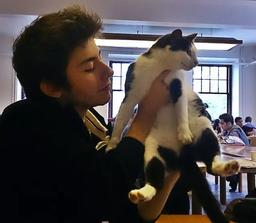Now we will learn the definite past of to be in Turkish. You create this form by adding the suffix -(y)Dİ after a noun or adjective, and then adding a personal suffix.
| Person | Ending | Example | |
|---|---|---|---|
| ben | (y)Dİm | I was very fat. | Çok şişmandım. |
| sen | (y)Dİn | Where were you? | Neredeydin? |
| o | (y)Dİ | It was closed. | Kapalıydı. |
| biz | (y)Dİk | We were in China. | Çin'deydik. |
| siz | (y)Dİnİz | You were ill. | Hastaydınız. |
| onlar | (y)Dİ(lEr) | They were young. | Gençtiler. |
For the negative definite past form of to be, this suffix comes behind the word değil.
| The greengrocery was not open. | Manav açık değildi. |
| We were not here. | Burada değildik. |
Questions are formed by putting the suffix behind the question particle mİ.
| Was I a naughty child? | Yaramaz (bir) çocuk muydum? |
| Were you lazy? | Tembel miydin? |
| Wasn't he hardworking? | Çalışkan değil miydi? |
| Were you a fisherman? | Balıkçı mıydınız? |
| Weren't they tired? | Yorgun değil miydiler? |
Your questions are stored by us to improve Elon.io

